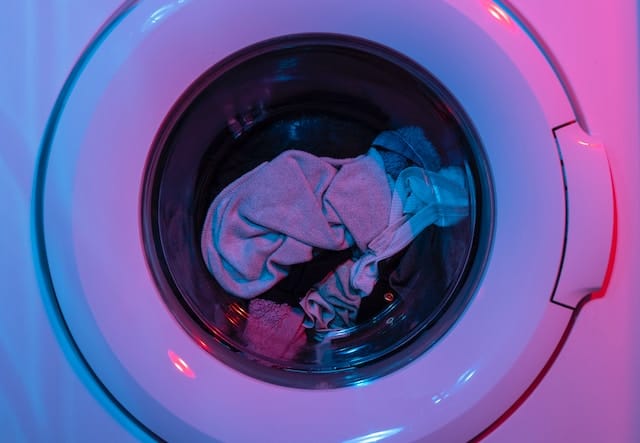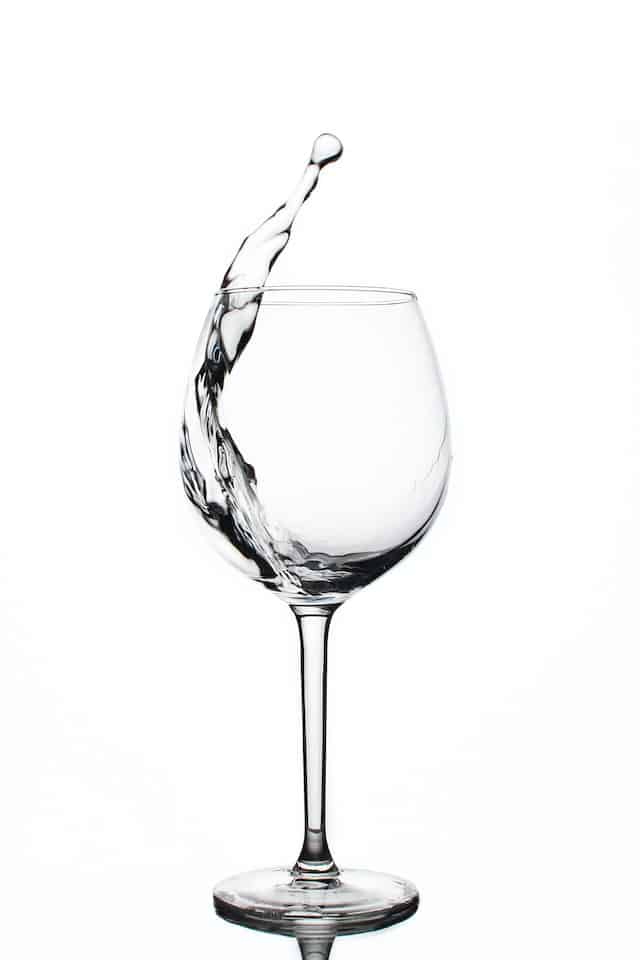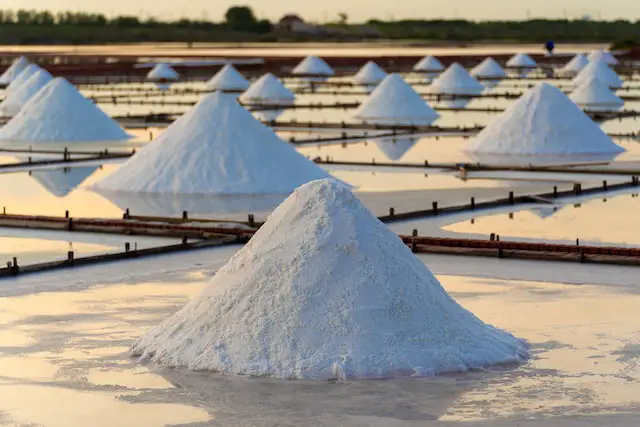
One aspect of water quality that I have always not really understood has been the subject of water hardness, is it bad? is softened water really preferable? This general thought process led me to put some time into the research and come up with the main advantages and disadvantages of softened water, I have deliberately left out the topic of taste as that is something that is extremely subjective and not really something with a yes or no answer!
Softened water can improve skin and hair, extend appliance life, decrease energy bills, and lead to cleaner clothes/dishes. However, softened water can also have a high salt content, which can damage pipes and appliances, contribute to environmental concerns, and increase the risk of corrosion.
Advantages of Softened Water
1. Better for Your Skin and Hair

Softened water is known to be better for your skin and hair than hard water. This is due to several factors, which we will explore below.
Firstly, hard water contains high levels of minerals such as calcium and magnesium, which can build up on the skin and hair, causing dryness, irritation, and itchiness. The mineral build-up can also clog pores, leading to acne and other skin problems. Softened water, on the other hand, is free from these minerals, making it gentler and more nourishing to the skin and hair.
In addition, the minerals in hard water can make it difficult to rinse off soap and other cleansing products. This can leave a residue on the skin and hair, leading to a dull, greasy appearance. Softened water, by contrast, is better able to rinse away soap and other products, leaving the skin and hair feeling clean and refreshed.
Another benefit of softened water for the skin is that it can help to reduce the appearance of wrinkles and fine lines. Hard water can be very drying, which can exacerbate the signs of ageing. Softened water, with its gentle and nourishing properties, can help to keep the skin hydrated and plump, reducing the appearance of wrinkles and fine lines.
For the hair, softened water can help to improve its texture and appearance. Hard water can make hair dry, brittle, and prone to breakage. Softened water, by contrast, is less likely to strip the hair of its natural oils, leaving it looking and feeling softer, shinier, and more manageable.
Finally, softened water can help to reduce the amount of hair loss experienced by some people. Hard water can cause scalp irritation and inflammation, which can lead to hair loss. Softened water, with its gentle and nourishing properties, can help to soothe the scalp and reduce inflammation, leading to healthier hair growth.
2. Extends the Life of Appliances

Softened water has several benefits that can help to extend the life of appliances in your home. I will explain below some of the ways in which softened water can help to protect your appliances and extend their lifespan.
Firstly, the minerals in hard water can build up in appliances such as dishwashers, washing machines, and coffee makers. This build-up can cause blockages and damage to internal parts, leading to breakdowns and reduced efficiency. Softened water, which is free from these minerals, can help to prevent this build-up and keep appliances running smoothly.
Secondly, hard water can cause corrosion in appliances over time. The minerals in the water can react with metal surfaces, leading to rust and other forms of damage. Softened water, with its reduced mineral content, is less likely to cause corrosion, helping to extend the lifespan of appliances.
Thirdly, softened water can help to improve the efficiency of appliances such as water heaters and boilers. Hard water can cause scale build-up on heating elements, reducing their efficiency and increasing energy costs. Softened water can help to prevent this scale build-up, allowing appliances to operate at their optimum efficiency levels.
Fourthly, softened water can help to reduce the amount of soap and detergent needed to operate appliances such as washing machines and dishwashers. Hard water can make it difficult for soap and detergents to dissolve, leading to the need for larger amounts of product to achieve the same level of cleaning. Softened water, by contrast, allows soap and detergents to dissolve more easily, reducing the amount needed and saving you money in the long run.
Finally, using softened water in appliances can help to reduce the frequency of maintenance and repairs. Hard water can cause a range of problems in appliances, from clogging pipes to damaging seals and gaskets. By using softened water, you can help to prevent these issues from occurring, reducing the need for costly repairs and maintenance work.
3. Reduces Energy Bills

Softened water can help to decrease your energy bills in several ways, making it an environmentally-friendly and cost-effective choice for your home. Below are some of the ways in which softened water can help to reduce your energy consumption and lower your utility bills.
Firstly, hard water can cause a build-up of scale in appliances such as water heaters and boilers, reducing their efficiency and increasing energy costs. The scale acts as an insulator, preventing the heat from being transferred efficiently, and forcing the appliances to work harder to maintain the desired temperature. Softened water, which is free from minerals, can help to prevent this scale build-up, improving the efficiency of your appliances and reducing your energy bills.
Secondly, softened water can help to reduce the amount of soap and detergent needed to clean clothes and dishes. Hard water can make it difficult for soap and detergents to dissolve, leading to the need for larger amounts of product to achieve the same level of cleaning. Softened water, by contrast, allows soap and detergents to dissolve more easily, reducing the amount needed and saving you money on cleaning products.
Thirdly, using softened water in appliances such as washing machines and dishwashers can help to improve their efficiency and reduce energy consumption. Hard water can cause appliances to work harder to achieve the same level of cleaning, leading to increased energy usage and higher bills. Softened water can help to improve the efficiency of these appliances, reducing energy consumption and saving you money on your utility bills.
Finally, softened water can help to extend the lifespan of appliances, reducing the need for costly repairs and replacements. As discussed earlier, hard water can cause a range of problems in appliances, from clogging pipes to damaging seals and gaskets. By using softened water, you can help to prevent these issues from occurring, reducing the need for expensive repairs and replacements and ultimately saving you money.
4. Cleaner Dishes and Clothes

Softened water is particularly effective at cleaning clothes and dishes, as it is free from minerals that can cause a range of problems. Below are some of the ways in which softened water can lead to cleaner clothes and dishes in your home.
Firstly, hard water can make it difficult for detergents and soaps to dissolve properly, which can leave clothes and dishes looking dull and dirty. Softened water, by contrast, allows detergents and soaps to dissolve easily, which means they can do their job more effectively. This leads to clothes and dishes that are cleaner, brighter, and more hygienic.
Secondly, hard water can cause mineral deposits to build up on clothes and dishes, which can leave them looking stained and discoloured. Softened water helps to prevent these mineral deposits from forming, which means clothes and dishes stay looking clean and bright for longer.
Thirdly, hard water can cause soap scum to build up on surfaces, which can be difficult to remove and can leave clothes and dishes looking dull and grimy. Softened water helps to prevent soap scum from forming, which means clothes and dishes stay cleaner and brighter for longer.
Fourthly, hard water can cause fabrics to become stiff and scratchy, which can be uncomfortable to wear and can make clothes look older than they actually are. Softened water helps to keep fabrics soft and supple, which means clothes are more comfortable to wear and stay looking newer for longer.
Finally, hard water can cause dishes to become coated in a layer of mineral deposits, which can be difficult to remove and can make dishes look dirty and unappetizing. Softened water helps to prevent these mineral deposits from forming, which means dishes stay looking clean and appetizing for longer.
Disadvantages of Softened Water
1. High Sodium Content

When water is softened, the minerals that make it hard are removed and replaced with sodium ions. This can lead to an increase in the salt content of the water, which can have a number of negative effects. Below are some of the potential downsides of high salt content in softened water.
Firstly, high salt content in softened water can have negative effects on your health. Excessive salt intake can lead to high blood pressure, which can increase your risk of heart disease and stroke. While the amount of salt in softened water is typically not high enough to cause significant health problems, it is important to be mindful of your salt intake if you are using a water softener.
Secondly, high salt content in softened water can be problematic for people on low-sodium diets. For individuals who need to limit their salt intake, using a water softener can make it difficult to stay within their recommended daily sodium limits.
Thirdly, high salt content in softened water can lead to problems with taste and odour. Some people report a salty taste or odour in their water when it is softened, which can be unpleasant.
Fourthly, high salt content in softened water can lead to problems with plumbing and appliances. While softened water can help to extend the life of appliances by preventing mineral build-up, the increased salt content can have negative effects. The high salt content can corrode pipes and cause damage to appliances over time, which can lead to costly repairs or replacements.
Finally, high salt content in softened water can be harmful to the environment. When water is softened, the minerals that are removed are typically flushed out into the environment. These minerals can have negative effects on soil and water quality and can harm plants and wildlife.
2. Can Cause Corrosion

The change in the water chemistry after being softened can cause problems with corrosion in certain materials, particularly those made of metal.
One of the main ways in which softened water can cause corrosion is by increasing the salt content of the water. This can lead to a build-up of salt on metal surfaces, which can cause them to corrode over time. In addition, softened water can be more acidic than hard water, which can further increase the risk of corrosion.
Another way in which softened water can cause corrosion is by increasing the solubility of certain metals. For example, when copper is exposed to softened water, it can become more soluble and more likely to corrode. This can be a particular problem in homes with copper plumbing or appliances.
Finally, softened water can cause corrosion in certain materials by removing protective coatings or films. For example, some metals have a natural oxide layer that protects them from corrosion. When these metals are exposed to softened water, the minerals that make up the oxide layer can be removed, leaving the metal vulnerable to corrosion.
In order to prevent corrosion from softened water, it is important to use the right type of materials and to monitor your water quality regularly. For example, if you have copper plumbing, you may need to use special fittings or coatings to protect the pipes from corrosion. You may also need to use a water softener that is designed to minimize the risk of corrosion, such as one that uses potassium chloride instead of sodium chloride. Additionally, monitoring your water quality regularly and taking steps to prevent corrosion can help to ensure that your plumbing and appliances last as long as possible.
3. Environmental Concerns

One major concern is the impact of water softeners on local water sources. When water is softened, the minerals that make it hard are typically flushed out into the environment. This can have negative effects on soil and water quality and can harm plants and wildlife.
In addition, the process of water softening requires energy and resources, which can have a significant environmental impact. Water softeners typically require electricity to operate, and may also require the use of chemicals or other resources to treat the water. This can lead to increased carbon emissions and other negative environmental effects.
Furthermore, the production and disposal of water softeners can also have negative environmental impacts. Many water softeners are made of plastic or other materials that can take hundreds of years to decompose in landfills. This can contribute to pollution and other environmental problems.
Finally, the increased salt content of softened water can also be harmful to the environment. Salt can have negative effects on soil quality, and can harm plants and wildlife. In areas where water softeners are widely used, the salt content of local water sources may be significantly higher than in areas without water softeners.
To minimize the environmental impact of water softening, it is important to consider alternative methods of treating hard water. For example, some households may be able to use filters or other treatments to remove minerals from their water without the need for a water softener. Additionally, choosing a water softener that uses potassium chloride instead of sodium chloride can help to reduce the salt content of softened water. Finally, properly disposing of water softeners and other related materials can help to minimize their impact on the environment.

